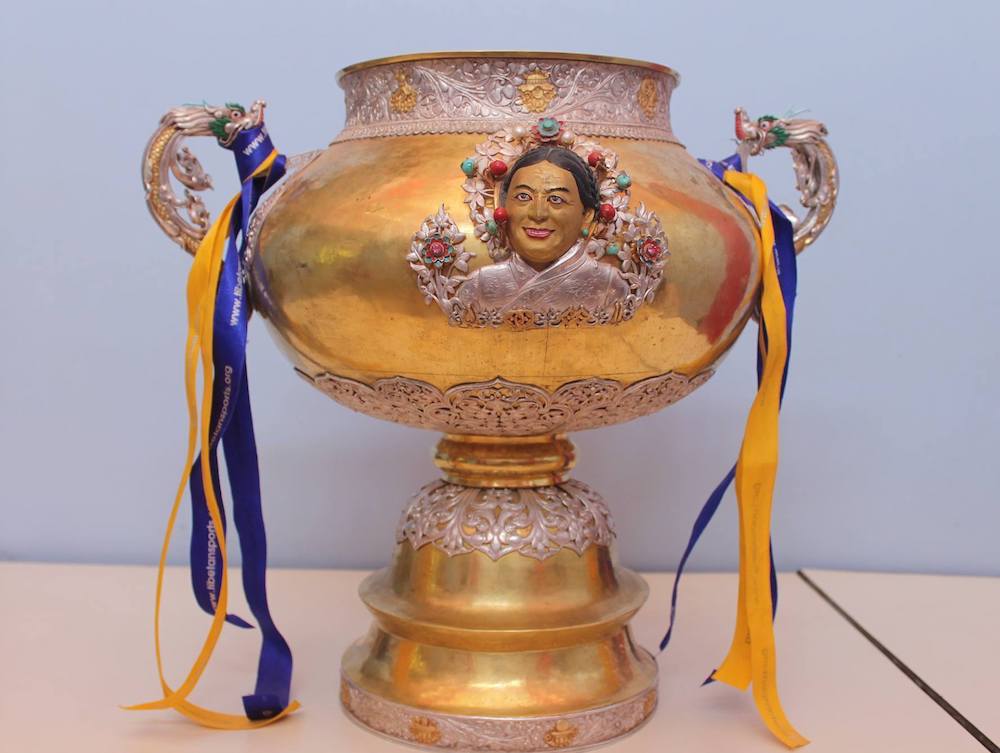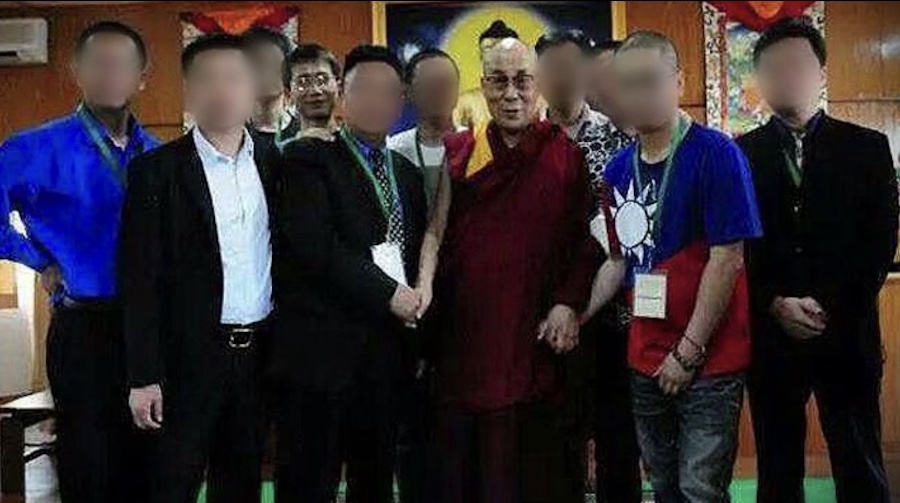By Schuyler von Oeyen
Showing remnants of the torture he endured as a political prisoner, Palden Gyatso — the second−longest serving political prisoner in Tibet — testified to Chinese human rights violations Friday before a crowd of about 100 students.
Imprisoned from 1959 to 1992, Gyatso described his experience in the 1960s, along with 7,000 other political prisoners, as one of “total starvation.”
“During those times, conditions were so bad that many prisoners were buried before they died,” he said. “In many ways, it was as bad as the Holocaust. We were only allowed one ladle of soup per day. When let outside, prisoners would eat anything green. One day, I even resorted to eating my own leather shoe.” Over the course of his first decade in prison, he said 70 percent of prisoners died.
Wearing a traditional Buddhist robe, Gyatso spoke with a passionate but tranquil demeanor. He supplanted his words by showing scarring from torture and pictures from his book, “Fire Under the Snow.”
Before his arrest, Gyatso attended a university, where he trained to become a Buddhist monk. In 1959, when he was 28 years old, he joined peaceful protests for a free Tibet. “For that, I paid the price of 33 years in prison,” he said. “Since 1959, I have paid 33 years of my life for my peaceful slogan (in support of) Tibet’s rights.”
Forced labor assigned to political prisoners included the growth and harvest of vegetables. The consequences of inadequate production were fatal, he said.
“They call it a criminal justice system, but the process is very degrading,” he said. Forced to kneel on a platform that was covered in broken glass, Gyatso watched as Chinese authorities bound his hands and stripped him naked, he said. “They asked if our ideology and allegiance to Tibet had changed. When I said no, they tortured me.”
During his imprisonment, methods of torture only became more sophisticated, he said.
“Since 1981, they have started to use more highly sophisticated weapons,” he said. “On one severe case, Oct. 13, 1990, two people held me in a chair. They asked if I still favored a free Tibet. They then shoved a rod into my throat. All of my jaw was full of blood. The tongue split like a delta. I have no teeth today.” Gyatso then displayed his toothless jaw.
Gyatso said Chinese authorities often killed prisoners, and then charged families for the cost of the nooses and bullets used to execute them.
The situation today may be slightly improved, but Gyatso maintains it is still very grim. While the Chinese may claim today that prisoners are not dying, starvation continues, he said.
“Families can now visit the prisoners and bring food. Tibetans started feeding themselves and criminal Chinese inmates. When one Chinese prisoner claimed they had no right to starve him, he was deemed anti−Chinese and was shot,” he said.
Despite the torture while in prison, Gyatso said he does not hold any grudges against the Chinese, even those who tortured him. “According to Buddhist philosophy, it behooves me to control my anger. Being angry will not return my 33 years; they are spent. To educate in a nonviolent, constructive manner, that might bring a peaceful end,” he said.
Gyatso said advocates for a free Tibet hope for constructive negotiations with Chinese Vice President Hu Jintao in June when they will ask for Tibet to become an “autonomous region rather than an independent nation.”
Since his 1992 release, Gyatso has toured the world, testifying to the human rights violations in Tibet and promoting nonviolent negotiations to end Chinese occupation. He appealed to the crowd to work constructively on his behalf.
“The future is in your hands. Some of you,” Gyatso said, “may become representatives or even president of the United States. How you use your knowledge is important. You have great freedom and facilities here to accomplish great aims. Use them.”
The event, which took place in MacMillan 115, was sponsored by Students for a Free Tibet.










3 Responses
this topic is so inspirational to me and my family, thank you 🙂
This reminds me of my childhood, I am literally crying. Thank you for making me smile 😉
i love this topic!!!!!!!!! thank you for making things clearer xoxoxo